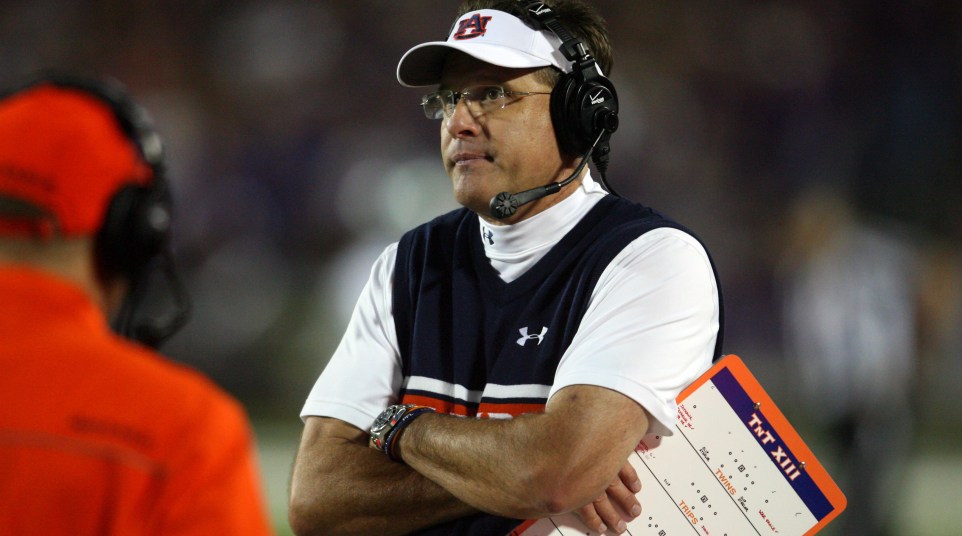What is the best-case scenario for Auburn's RBs this season?
Assuming Auburn doesn’t suffer a production slip following Cameron Artis-Payne’s exit, how explosive can the Tigers’ running game become this season?
Should history repeat itself, awfully good.
Add the dynamic of a pro-style passer like Jeremy Johnson who will keep defenses honest by limiting the number of defenders in the box and Gus Malzahn’s offense could produce 2010-caliber numbers barring injury or unforeseen struggles up front.
There’s a reason why Auburn’s staff made five-star JUCO transfer Jovon Robinson its top priority offensively in this year’s signing class and is expecting supreme production from the squad’s justifiable No. 1 tailback entering fall practice next week.
He’s posted back-to-back 1,000-yard seasons and has been an immediate force in the Tigers’ offense since enrolling in December and joining the team for bowl practices. The head start to his first campaign on the Plains put him on even ground with Roc Thomas and Peyton Barber, his primary competitors for carries.
“He’s got a real chance to be a special player,” Malzahn said during the spring. “He’s a real physical guy, he’s got all the attributes to be a very good running back.”
Timing and pace makes the Auburn offense go and Robinson’s shown no signs of struggle adjusting to a new playbook.
While it’s not all that complex, Malzahn’s gap-to-gap inside read and counter is one of the nation’s most potent ground philosophies and has produced a 1,000-yard rusher every season he’s been a collegiate play-caller.
From Darren McFadden at Arkansas to David Oku at Arkansas State, Malzahn’s tempo-based system works:
1,000-yard rushers under Malzahn’s tutelage
- 2006: Darren McFadden, Arkansas
- 2007: Tarrion Adams, Tulsa
- 2008: Tarrion Adams, Tulsa
- 2009: Ben Tate, Auburn
- 2010: Cam Newton, Michael Dyer, Auburn
- 2011: Michael Dyer, Auburn
- 2012: David Oku, Arkansas State
- 2013: Tre Mason, Nick Marshall, Auburn
- 2014: Cameron Artis-Payne, Auburn
Possessing some of most prolific rushing attacks in the FBS ranks over the last decade, Malzahn’s offense has yielded two 1,000-yard rushers in the same season twice — first during Auburn’s unbeaten national championship run in 2010 when Heisman winner Cam Newton and five-star freshman Michael Dyer accomplished the feat and again in 2013 when the Tigers won the SEC but fell to Florida State in the final game.
If Auburn produces two 1,000-yard backs this season, chances are the Tigers will be playing in the College Football Playoff as league champions.
Robinson’s waited three years for this opportunity after a senior-year grade change ruled him ineligible coming out of high school in 2012.
He won’t squander his chance at redemption.

